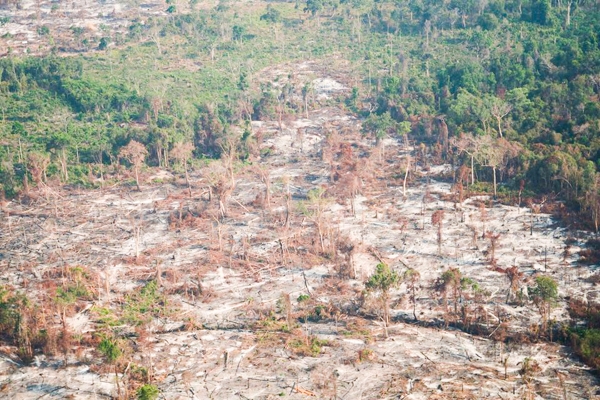BY TAING VIDA AND JONATHAN GREIG
In an open letter to the leaders of Asean member states and the rest of the world, the ruling Cambodian People’s Party (CPP) yesterday attacked the opposition for allegedly “undermining democracy, political stability and the image of Cambodia in the international arena.”
On Monday, the government was caught with egg on its face after shutting down a major road in Phnom Penh in advance of a march which never happened.
Phnom Penh residents were stuck for hours and some local news outlets reported sick passengers stuck in endless traffic throughout the morning.
Instead of marching with crowds to each embassy, three opposition Cambodia National Rescue Party (CNRP) members handed open letters to the representatives of 15 embassies.
The open letters, addressed to leaders of Asean states and signatories of the Paris Peace Agreement (PPA), slammed the government and the CPP for “violating the will of the Cambodian people…as well as the fundamental principles enshrined in the PPA, through the increasingly inhumane abuse of power and suppression of public and personal freedoms, land activists, human rights defenders and opposition leaders and members at all levels have been detained, arrested and sentenced through manipulation of the judicial system.”
Interior Minister Sar Kheng, acting as head of a parliamentary majority faction, responded to the opposition with his own letter and discussed the “political reality” of Cambodia and how it contrasted with the way the CNRP presented the country’s political situation to people outside Cambodia.
Opposition members, he said, were attempting to use their own privilege to serve themselves rather than fulfill their duties to their constituents. He claimed they were “using parliamentary immunity as a shield to protect themselves when they violate the law and the constitution.”
“The CNRP cannot defame or accuse someone of a crime without evidence, or falsifying public documents or inciting violence and consider it an exercise of freedom of expression,” Mr. Kheng wrote. “It is clear that freedom of expression in the country is higher than in many countries in the region, including within Asean.”
He went on to say that opposition leaders “think they are above the law” and referenced CNRP leaders Kem Sokha and Sam Rainsy as examples, eventually excoriating the party for accusing the government of being behind the murder of political analyst Kem Ley.
Mr. Kheng ended the letter by urging the international community to understand the “real” situation in Cambodia and ignore the opposition’s attempts to “ruin the interests and reputation of the country.”
Head of the parliamentary minority group Son Chhay could not be reached yesterday, but earlier this week in a press conference he said both sides knew exactly what they were doing and hoped the CPP would restart dialogue between the two sides for the benefit of the country.
Mr. Chhay added that at the 28th Asean Summit, which is being held in Laos this week, members of Asean should raise the issue of Cambodia’s political situation with the country’s representatives and find an “immediate solution to prevent the return of policies and practices of the past.”
“We call on Asean leaders and leaders of signatories to the Paris Peace Agreement to fulfill their responsibility in pushing Prime Minister Hun Sen to put an immediate end to his dictatorial behavior and grave violation of the PPA,” Mr. Chhay said.
The government’s claims that the opposition was misrepresenting Cambodia were challenged on Tuesday in a statement issued by Ravina Shamdasani, the spokesperson for the UN High Commissioner for Human Rights.
During a press conference in Geneva, Ms. Shamdasani expressed concern about the “escalating atmosphere of intimidation of opposition politicians, their supporters, civil society and peaceful demonstrators in Cambodia.”
She criticized the ruling party for its questionable ties to the army and recent threats to anyone opposing them.
“Over the past few days, a strong show of force was conducted by the armed forces at the headquarters of the main opposition party, the Cambodia National Rescue Party,” she said.
“This, combined with an increase in rhetoric by high-level army officials, who have vowed to defend the ruling party against political opposition, is deeply worrying.”
Addressing the consistent government line that they are only abiding by the law in arresting and prosecuting opposition leaders on what many say are politically-motivated charges, Ms. Shamdasani said Prime Minister Hun Sen and his officials had to “take measures to ensure the safety of all Cambodians, particularly high profile political opponents.”
“The weak evidentiary basis of the charges and the accompanying procedural flaws raise serious concerns about the fairness of the proceedings,” she said. “We urge the authorities to adhere strictly to international fair trial standards during the criminal proceedings, including ensuring transparency in the administration of justice.”
Finally, she turned her attention to the next elections, saying the government had to do a better job of creating “an environment conducive to the enjoyment of freedom of expression, peaceful assembly and association.”
Chak Sopheap, director of the Cambodian Center for Human Rights, said she appreciated the UN’s effort to put a spotlight on issues affecting the political situation in the country and said recent government actions illustrated their true fear: the power of the masses.
“The procedures outlined in the Law on Peaceful Demonstrations are being routinely ignored and this must be addressed before we reach the campaigning period of the commune elections. The decision by the authorities to shut down such a busy street [on Monday] demonstrates an increasing fear of ‘people power’ as we draw closer to the upcoming elections,” she said.
“While it is the legitimate role of the military to protect the elected government, recent statements by senior military figures are extremely concerning as they show explicit loyalty to the ruling party. This is creating an environment which is extremely hostile to the exercise of fundamental freedoms, and which seriously threatens the prospects for free and fair elections.”
http://www.khmertimeskh.com/news/29505/un--cpp-spar-on-political-climate/

